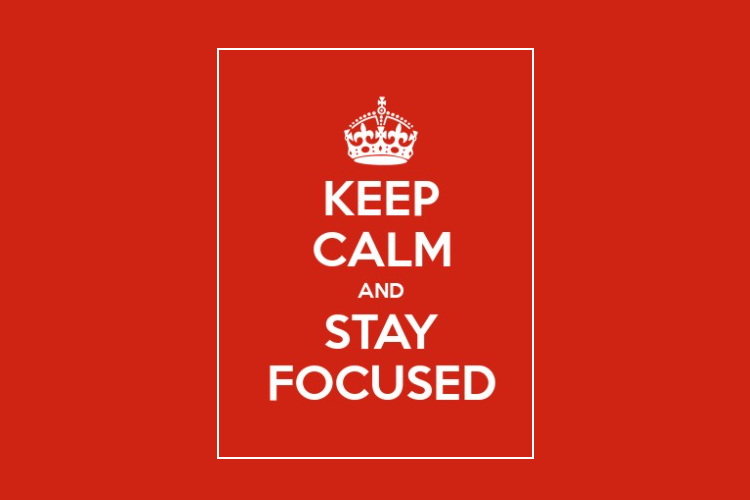
Keep calm and stay focused
Which of these experiences does your workday feel like?
Imagine going to the gym and following an optimised workout plan: you have a certain number of reps of one exercise where your muscles are used to their limit, you rest, recover, and do another set. You move to another machine for a similar set of reps there, then the next and so on until you have completed your plan. You finish the workout on a cardio machine for a set time.
Then you notice a young man who rushes into the gym. He does a couple of arm exercises, jumps over to the leg machine for a few reps, then spends 2 minutes on the treadmill whilst on his phone, then the rowing machine for a minute, only to have his attention grabbed by all the new equipment in the mat area all of which he tries briefly.
While the latter may feel like more fun and interesting, it is far from an optimal workout. It is inefficient and scattered, with no muscles really getting a full workout.
Which of these workouts does your workday resemble?
Are you more organised? Or is your day more scattered and full of many tasks that you move between?
Each time we have a new task to focus on, it takes effort and brain power to make the shift. The more often you shift, the more brain power you use up – on the shifts alone, never mind on accomplishing the tasks. We have a limited amount of this type of brainpower to use in one day, why waste it on shifting from one thing to another? It is possible to use up most of your brain power in the first half of a day if you shift back and forth between a large number of tasks.
“Multi-tasking” is a myth
The brain does not do several things at once. It can do several things in sequence and can even shift from one task to the next relatively easily. At least it can when your brain is fully topped up with energy and the tasks are not complex.
The problem is that the part of the brain that manages these shifts is also the part of the brain that does your best thinking. If you wear it out shifting between tasks, then you miss the opportunity to apply your brain power to your highest priority work.
If you keep allowing yourself to be distracted by shiny new things to do, you will be more stressed, more reactive and less patient. And, guess what? The quality of your output will be diminished.
Optimise your thinking power
If you want to have a lot of thinking power during a day, reduce the amount of task switching. Organise your day so you have time to think and work, uninterrupted.
Turn off devices during this time and let go of the idea that you need to be always on. You don’t. You can let your teammates know that you will choose to focus on getting your work done in chunks of time – try 25 or 30 minutes of pure focus. Then take a break before continuing. Focus on the work that requires the best of your brain during the time of day when you have the most energy. Save a chunk of your day to attend to details – or spread that out in a few smaller chunks throughout the day. Develop the discipline to make this a regular habit.
By adopting this approach something happens. This focus on ‘one thing’ takes you to a whole new level often referred to as a ‘flow’ state – which is where you are most creative and most effective.
Brain management is essential. You can reduce stress, increase resilience, think better, solve more complex problems and work better with others. Rewired to Relate helps you understand the links between brain-care, emotional management and working well with others.
Rewired to Relate

Rewired to Relate goes straight to the heart of the matter: it reveals how the emotional brain drives most of our behaviour according to its needs and whims. The programme will teach you how to manage these impulses and to choose the impact you want to have on others.
find out more